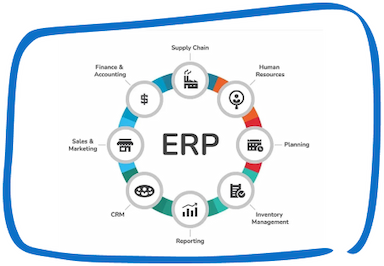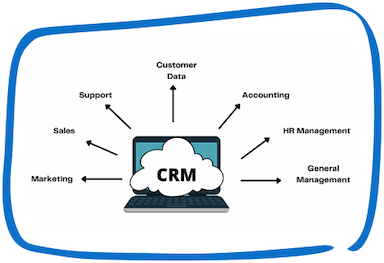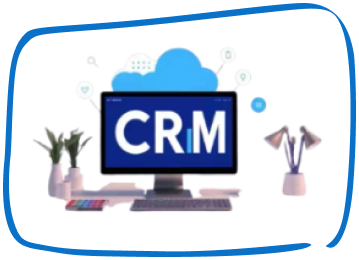Enterprise resource planning (ERP) is a game-changer in a field where efficiency is continually sought after yet challenging to obtain, such as manufacturing.
Manufacturing ERP integrates all aspects of facility operations, from production to payroll.
More excellent operational efficiency results from the extraordinary visibility, coordination, and also management that ERP enables across the various activities that make up an organization.
How does manufacturing ERP operate?
As the manufacturing industry involves multiple procedures every day, ERP makes sense.
The following are some examples of processes that ERP may assist manage and streamline;
This article describes in more detail how these processes can now “talk” to one another via ERP, a significant advantage.
1. Inventory management
ERP Software can serve as a consolidated resource for inventory tracking, data analysis, and replenishment plan for everything from MRO to equipment spares.
2. Maintenance
By consolidating scheduling, ticketing, and work order administration and enabling robust data tracking and also analytics to increase maintenance effectiveness, manufacturing ERP software promotes successful maintenance.
3. Supply chain
ERP makes it possible to track vendor performance with visibility and organization, and it can use data from both internal and external sources to help with more effective supply chain management and planning.
4. Equipment performance tracking
By storing, tracking, and also analyzing equipment operation data from sensors and reports, ERP modules enable informed, proactive, focused maintenance.
5. Purchasing
Requisition, purchase, and other business processes are efficiently structured and managed using ERP.
6. Bill of material
Any cloud manufacturing software relies on a bill of materials (BOM), as well as the accuracy of the BOM ensures resilience and accuracy.
The finished product is listed first in the categories of the ERP BOM.
Additionally, it includes product numbers, descriptions of the parts, capacities, costs, and additional parameters.
7. Shop floor management
You can automatically record routine shop floor actions with the help of the operations and workstations function.
Real-time analysis of the manufacturing process, the location of each workstation, employee assignments, and the current state and next steps for each order.
8. Subcontracting
Does your company outsource any of its operations to a dealer? The ERP’s subcontracting capability makes distributing raw materials and managing activities simple.
The cost of the raw materials and any hired services are also factored into the calculation of the final goods’ value.
9. Item variants
The manufacturing industry’s ERP system stores the main item as an item template and any variation as an item variant.
For each item version, it keeps any feature, such as color or form.
10. Stock renewal
With the aid of ERP, the out-of-stock problem is avoided. You can learn the stock level by keeping an eye on an item’s reorder level.
Additionally, by refilling inventory at the appropriate moment and reducing the likelihood of stock collapse, ERP will automatically issue a material request.
11. Capacity planning
Based on the resources available for active manufacturing orders improves your workstations.
Create a capacity plan to identify and remove bottlenecks on the shop floor.
Additionally, With the aid of ERP, maintain and oversee planning schedules for a predetermined amount of time.
Top 10 ERP Software in UAE
Here are a few advantages of ERP for the industrial sector.
Improved productivity
You may efficiently as well as timely handle daily schedules with ERP.
It encourages centralized database support and aids in resource optimization for management.
Refined strategic planning, rapid and careful decision-making, increased speed, improved synchronization, and the handling of massive amounts of data are all fostered by ERP.
The following are a few ways that ERP boosts business productivity.
- It oversees the sales process and other departmental procedures in addition to streamlining financial operations.
- For better decision-making, an enterprise resource planning tool offers precise, real-time information.
- A contemporary ERP system guarantees timely staff communication for improved teamwork and higher output.
- Employees can readily access departmental data thanks to its integration.
Easy forecasting and reporting
When a manufacturing company sees an unanticipated demand for a particular product, planners typically deal with a crisis-like situation.
The same thing happens when the warehouse fills with extra unsold merchandise during a slow season.
Businesses, therefore, prefer to utilize an enterprise resource planning software system, which does not interfere with logistics and the complete supply chain process, to avoid such undesirable scenarios.
Production, sales, procurement, and inventory planning become rational thanks to ERP. It assists you in producing sales statistics as well as estimates based on past transactions.
Reducing the frequency of excess or out-of-stock inventory helps to avoid issues.
Additionally, because of its intelligent report features, the business can easily respond to complex data. Users are also able to conduct their reports independently of IT staff.
User-friendly ERP tools make planning easier and less onerous for planners.
With ERP, data retrieval by hand and hours-long report creation are no longer necessary. Users can make accurate material need plans by forecasting future demand.
Effective business intelligence systems facilitate reporting so that management may view the entire firm.
Saves time and money
Cutting corporate expenses enables business owners to increase profitability and growth, two goals shared by all entrepreneurs.
ERP removes the necessity for editing, looking for, and keeping paper documents by automating operations and centralizing information on a single platform. ERP lowers errors, saves time, and also makes sure no extra costs arise.
A robust ERP solution enables you to:
- You don’t need to spend money on numerous software packages.
- In less time, more work is completed.
- Employee productivity is increased while operational costs are reduced.
- IT can concentrate more on the important business areas.
ERP helps a firm become more profitable while lowering costs.
Lean manufacturing is promoted, which benefits
- Reduced financial outlays
- Spend less on supplies.
- Modernize the way you do marketing.
- Enhance time management techniques.
- Improve the abilities of your staff.
- Keep your clients.
- Raises the caliber of the output.
Enhanced data security
Safe infrastructure is crucial since data contributes to a company’s growth.
Data security is high with ERP systems. Additionally, managers and supervisors can tighten data limits for particular projects and needs.
Any data you enter into the ERP system is encrypted and also safeguarded.
Older ERP systems were susceptible to cybercrime since they needed to manually update every piece of the software.
With the use of modern technology, the ERP provider promptly delivers auto-updates, avoiding the possibility of data theft.
Reference: Penieltech
Speak with Our Team!
4.9 Stars
1k+ reviews on






